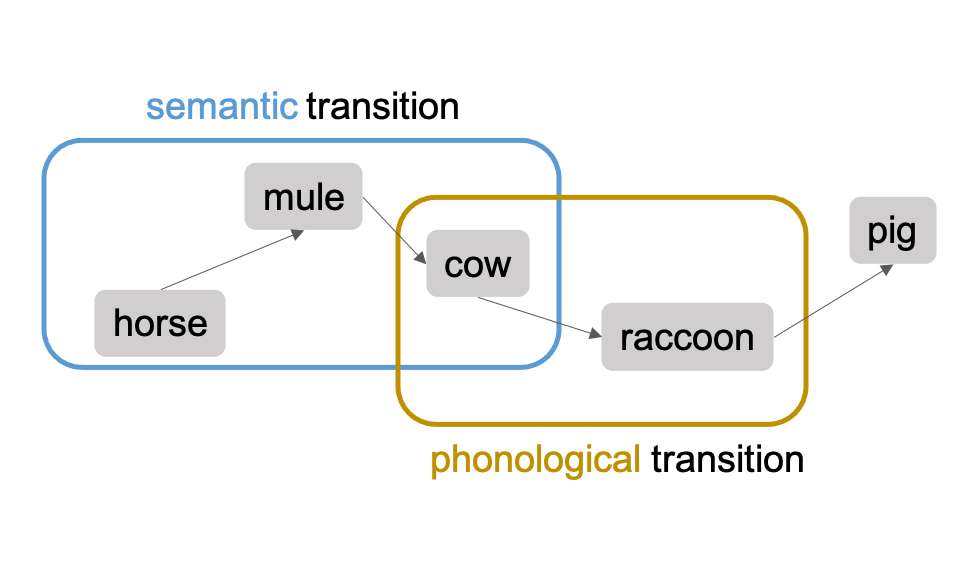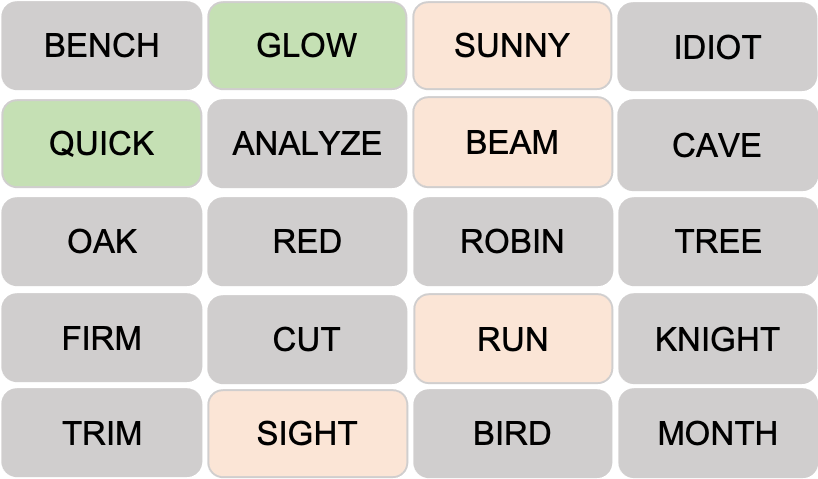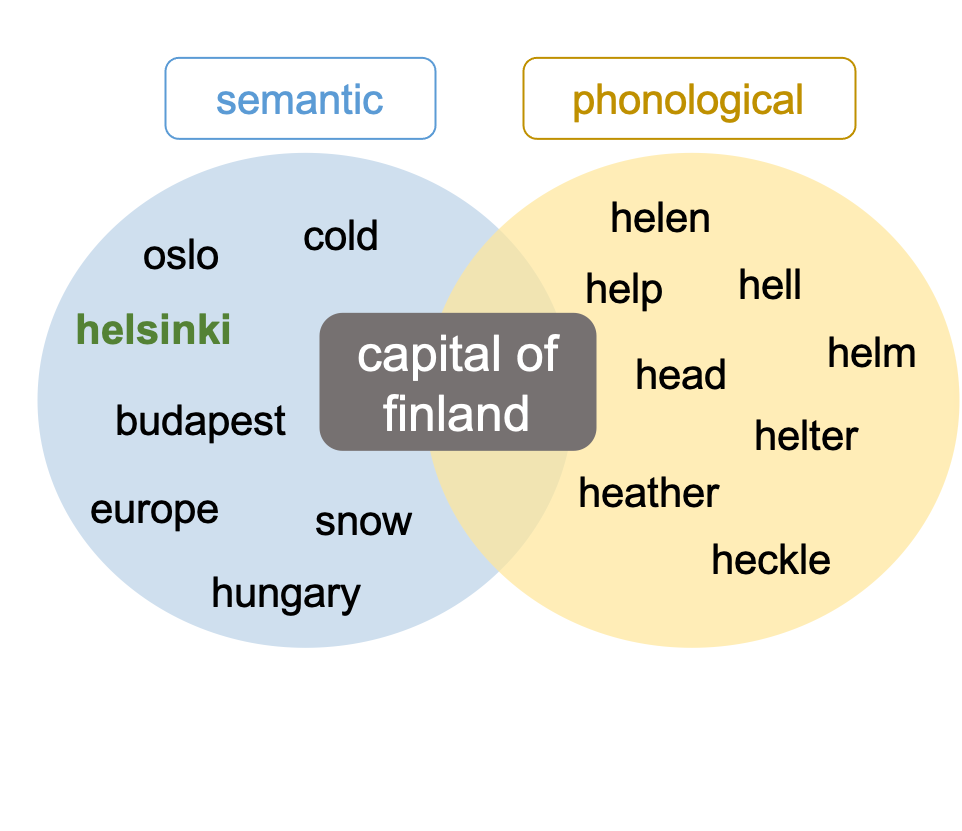research
big questions
How do we learn and represent knowledge? How do we search for information within our vast mental lexicon? How do we cooperate with other social agents in the environment? In this lab, we tackle these questions by conducting experimental investigations, building and evaluating computational models, and integrating perspectives from three core branches of cognitive science: psychology, artifical intelligence, and linguistics.For a list of papers from the lab, please check out our publications.
Play our game Semantigories! Test your word associations and see how you compare to others!
current projects
Bowdoin students: If you are interested in working on any of the projects below, or have a project in mind that aligns with the core questions motivating the lexicon lab, please check out our get involved page for more information!
If asked to come up with all the animals you know, most people can almost immediately generate a sizeable number of animals, and this list is often clustered by sub-categories of animals, such as pets, farm animals, etc. How does this generation process work and when does it break down? This line of research investigates how search occurs in the fluency task, and how it may break down when different aspects of cognition are impaired. For example, we have shown how search within the mental lexicon involves interactions between semantic (horse-mule) and phonological information (cow-raccoon). We are continuing to investigate aberrant search processes in populations with cochlear implants, as well as individuals with other cognitive impairments. We have also developed an open-source Python library (forager) for implementing computational models of memory search based on foraging theory and random walks. Most recently, we have explored how search differs among individuals, by examining differences in the structure of mental lexicons for individuals with cochlear implants and normal hearing, as well as focusing on their individual clustering and switching behaviors. More recently, we have launched the game Semantigories to investigate search on a broader scale. Try the game if you haven't already!

When do individuals decide to help one another, and how can we design human-like cooperative AI? In this work, we explore when and how people decide to offer help, and the role of language in mediating cooperative tasks. We investigate how individuals reason about the mental states of their partners, and how this reasoning influences their decision-making in a cooperative game setting. In preliminary work, we have designed a game (move-a-block) where agents attempt to complete goals in a grid-based world, and either help or receive help from other agents. We have shown that agents take each other's mental states into account when deciding to help or receive help. We are continuing to investigate how agents reason about unknown mental states and how this reasoning process mediates their subsequent actions. We are also interested in how search and collaboration can enhance educational experiences, especially for underrepresented students in STEM fields.
archived projects (no longer being pursued)

How do you describe to someone how music and tides are similar? In this line of work, we investigate how individuals utilize their knowledge about concepts to flexibly perform a wide range of communicative tasks. We employ rich experimental paradigms such as cooperative language games (such as Codenames!) and model how individuals search through their underlying semantic knowledge to ultimately communicate with partners. Our work has shown how individuals converge onto clues in a two-player cooperative game using associative information, as well as pragmatic inference. We have also shown how this process is relatively fast and automatic in most situations. Most recently, we have examined how individual search processes combine with inferential reasoning to produce successful communication within the Connector paradigm.

Why do words sometimes feel as if they're on the tip of our tongues? Why are some words harder to remember than others? Do the sound and meaning of words have different roles in remembering and forgetting? In this work, we investigate the influence of combined phonological and semantic information on lexical retrieval using a word definition trivia task (e.g., What is the capital of Finland?). Our work has shown that phonology is beneficial to retrieval, retrieving semantic information produces inhibition, and machine-learning-based computational models can account for lexical retrieval performance. We have also examined how individuals recall short lists of word pairs over short and long-term retention intervals. We find interesting interactions between different sources of information across different tasks and are continuing to investigate memory patterns during free recall.